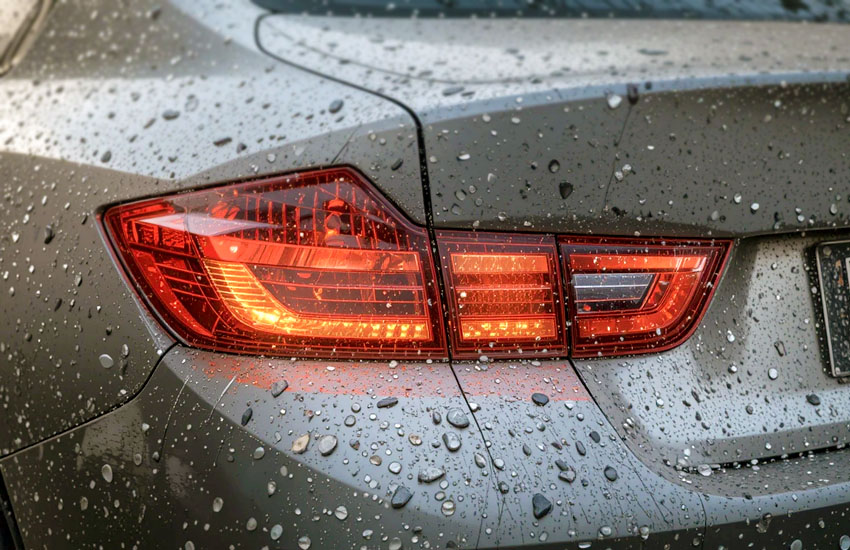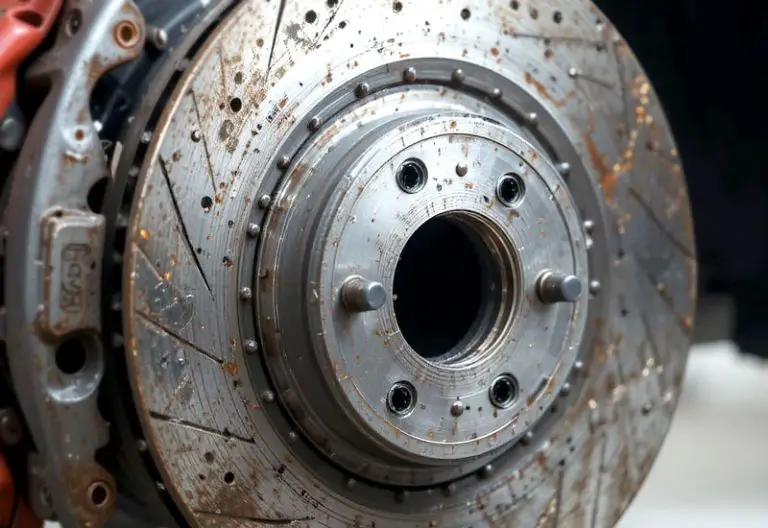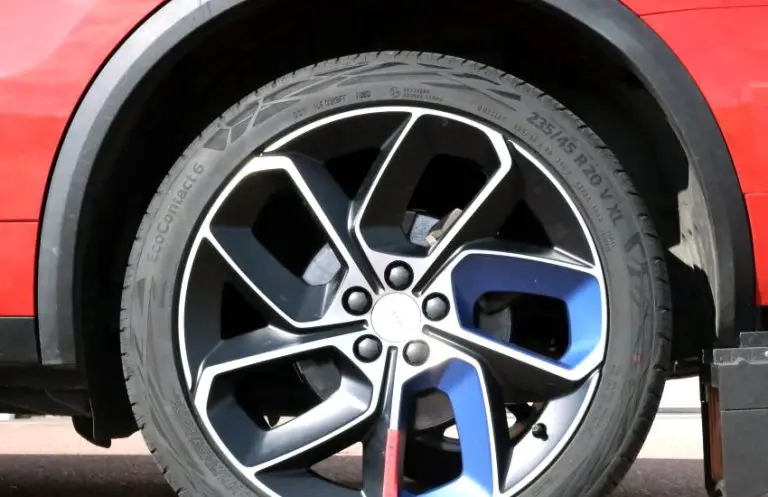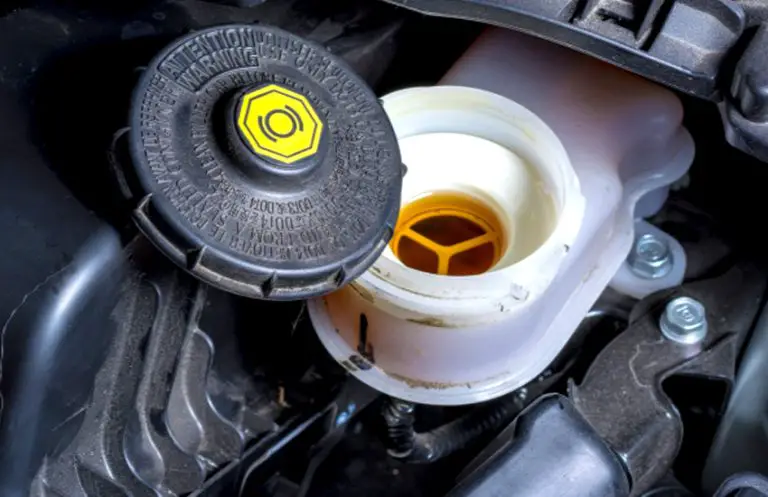Have you ever been in a rush, only to realize the brake light on your car is still glowing long after you’ve parked it? It might seem harmless, but could this little mistake lead to a dead battery? Let’s dive into how this works and why leaving the brake light on might not be as innocent as it seems.
What Happens When You Leave the Brake Light On?
You’ve probably heard the common myth that leaving your car’s brake light on for too long can drain your battery, but how true is this claim? The brake light is a crucial component of your vehicle’s electrical system, signaling to other drivers that your car is stationary and that you have engaged the brakes. This system draws power from your car’s battery to function, and while it seems like a small thing, leaving it on could have noticeable consequences.
When the brake light remains illuminated, it continuously uses energy. For cars with traditional incandescent bulbs, the current draw is relatively high compared to modern LED lights, which consume less power. That said, the overall impact of leaving the brake light on for a prolonged period depends on several factors: the type of vehicle, the condition of your battery, and how long the brake light stays on.
In a typical scenario where you accidentally leave the brake light on overnight or even for a day, your car’s battery may lose a significant amount of charge. This doesn’t mean the battery will be fully drained—car batteries are designed to be able to handle some level of drainage and still function—but the more the brake light is left on, the greater the drain on the battery. If the battery is already old or weak, this could result in a dead battery that will need a jump-start or, worse, replacement.
Interestingly, modern vehicles are designed with many fail-safe mechanisms that help prevent over-draining the battery, including systems that automatically turn off lights after a certain period. However, older vehicles or those with a faulty electrical system may not have such features, making them more vulnerable to the risk of battery depletion.

How Long Does It Take for a Brake Light to Drain a Battery?
You might wonder, “How long can I leave my brake light on before it drains my battery?” The exact time varies based on multiple factors. The most significant of these is the type of bulb your car uses. As mentioned earlier, incandescent bulbs are power-hungry compared to LEDs, which are more energy-efficient.
For instance, if your car uses traditional incandescent brake lights, they typically consume around 2 to 3 amps of power. If left on for 24 hours, this could drain around 48 to 72 amp-hours from your battery. For a typical car battery with around 48 to 72 amp-hours of total capacity, this means it could take a full 24-hour period or more of the brake light being on to drain the battery enough to prevent the car from starting.
For modern cars with LED brake lights, the energy consumption is much lower. An LED light typically consumes about 0.5 to 1 amp of power, meaning it would take significantly longer—up to several days—to drain the battery. In most cases, it would take more than 48 hours for an LED brake light to drain the battery enough to prevent starting the car. This doesn’t mean you should leave the brake light on for that long, but it does show that modern technology is far more forgiving in terms of energy usage.
Additionally, the age and condition of your battery will also influence how much drain occurs. A new battery with a high charge will handle a brake light being left on for a longer period without much issue. However, an older battery that is already weak may begin showing signs of strain after just a few hours.
What Causes the Brake Light to Stay On?
Now that you know leaving the brake light on can indeed drain your car’s battery, you might be curious about how it happens in the first place. There are several potential causes for this issue, and some are easier to fix than others.
Faulty Brake Light Switch
One of the most common reasons for a brake light staying on is a malfunctioning brake light switch. This switch is responsible for turning the brake light on when you press the brake pedal and turning it off when you release it. If the switch is broken or misaligned, it might not register that you’ve released the brake pedal, and as a result, the brake light will stay illuminated.
Stuck Brake Pedal
Another potential issue is a stuck brake pedal. If the brake pedal doesn’t return to its normal position after you release it, it might keep the switch engaged, keeping the brake light on. This is often a mechanical problem that could be caused by dirt or debris interfering with the pedal’s movement or issues with the brake booster.
Electrical Problems
Electrical issues within the car’s wiring or fuse box could also cause the brake light to stay on. A short circuit, damaged wiring, or faulty fuses might keep the brake light powered even when you haven’t touched the brake pedal. This can be tricky to diagnose without professional help, as it involves the vehicle’s electrical system.
Low Fluid Levels or Malfunctioning Brake System
In some cases, low brake fluid levels or a malfunctioning braking system can cause warning lights, including the brake light, to stay on. While this isn’t directly related to the brake light switch, it’s important to address any brake system issues to prevent both the brake light and other related warning indicators from staying active.
If you notice your brake light staying on for no apparent reason, it’s best to have your car checked by a mechanic to determine the underlying cause. Ignoring the issue could not only drain your battery but also indicate a deeper mechanical or electrical problem that needs attention.
What to Do if the Brake Light Drains Your Battery?
So, what should you do if you find that the brake light has drained your battery? First, don’t panic! There are a few straightforward steps you can take to resolve the situation and avoid it from happening again.
Jump-Start the Car
If you’re in a situation where the battery has been drained by a brake light that stayed on too long, the first step is to attempt a jump-start. You can do this using jumper cables and another vehicle with a functioning battery. Make sure to follow the correct procedure to avoid damaging your car or the other vehicle.
Replace or Recharge the Battery
If the battery is old or weak, you might find that jump-starting the car isn’t enough to keep it running. In this case, it’s best to replace the battery with a new one or, if you prefer, have it professionally recharged. Many auto parts stores offer free battery testing and can help you determine if it’s time for a replacement.
Fix the Brake Light Issue
To prevent this from happening again, you’ll need to address the root cause of the brake light staying on. If it’s due to a faulty brake light switch, have it replaced or repaired by a mechanic. If the brake pedal is stuck or there’s an electrical issue, these will need professional attention as well.
Be Mindful of Your Brake Lights
In the future, make it a habit to double-check that your brake lights are off when you leave the car. Some vehicles have an audible warning or a dashboard light that will alert you if the brake lights are on, so be sure to pay attention to these signs before walking away from your car.
Invest in a Car Battery Charger
For peace of mind, it may be worthwhile to invest in a portable car battery charger. These small devices allow you to charge your car battery when needed, and they can come in handy if you accidentally leave a light or accessory on for too long.
Can You Prevent Brake Light Drain in the Future?
Preventing brake light drain on your car’s battery is all about being proactive and keeping an eye out for warning signs. Thankfully, there are a few easy things you can do to reduce the risk of running into this problem in the future.
Check the Condition of Your Car’s Electrical System Regularly
A well-maintained electrical system will reduce the chances of your brake light staying on due to a faulty switch or wiring issue. Have your car inspected periodically by a mechanic to check for any potential electrical problems before they cause a drain on your battery.
Use LED Brake Lights
If your car uses incandescent brake lights, you may want to consider upgrading to LED bulbs. These consume significantly less power, so even if you accidentally leave them on, they will be much less likely to drain your battery.
Perform Regular Battery Maintenance
Keep your battery clean and ensure it is well-maintained. If you live in a region with extreme temperatures, battery performance can be affected, so be sure to check your battery regularly. It’s also a good idea to have your battery tested during routine maintenance to ensure it’s in good health.
Make Use of Automatic Shutoff Features
Many newer vehicles are equipped with automatic shutoff features that turn off your lights, including the brake lights, after a certain amount of time. If your car doesn’t have this feature, consider adding an aftermarket product that can help prevent this issue from happening again.
I hope this helps you eliminate those pesky brake light issues and save your battery from unnecessary strain! A little awareness and maintenance go a long way in ensuring your car stays in top shape. Always remember that while the brake light may seem like a small thing, its impact on your battery isn’t something to overlook!
Are These Questions in Your Mind?
Is it dangerous to leave the brake light on for a long time?
Leaving the brake light on for an extended period can drain your battery and make it difficult to start your car. While it isn’t usually dangerous, it’s best to avoid leaving it on unnecessarily to protect your battery.
Can a brake light drain your battery overnight?
Yes, depending on the type of bulb and the condition of your battery, leaving the brake light on overnight can drain enough power to prevent your car from starting.
Do I need to replace the battery if the brake light stays on for too long?
Not necessarily. If the battery is still in good condition, you might just need to jump-start the car. However, if the battery is old or weak, it may need to be replaced.
Is it safe to drive with the brake light on?
It’s generally safe to drive with the brake light on, but it indicates an issue with the brake system. It’s best to have it checked out soon to avoid further problems.
Can a faulty brake light switch cause other electrical issues?
Yes, a malfunctioning brake light switch can sometimes affect other parts of the electrical system, such as the brake pedal sensor or other warning lights.
Do I need a professional to fix my brake light problem?
If you’re not comfortable working with car electronics, it’s best to have a professional mechanic fix any issues with the brake light or electrical system.
Is it normal for the brake light to stay on if the car is turned off?
No, the brake light should turn off when the car is turned off. If it stays on, it’s a sign of a potential issue.
Can leaving the brake light on affect your car’s alternator?
Leaving the brake light on won’t typically affect the alternator directly, but a drained battery could put extra strain on the alternator if you try to start the car.
Is it possible for the brake light to drain a brand new battery?
While a brand new battery can handle more drain, leaving the brake light on for extended periods could still cause a significant reduction in charge over time.
Do I need to replace the brake light switch if it stays on?
If the brake light stays on due to a faulty switch, it should be replaced to ensure proper operation of the brake system and to prevent draining your battery.


